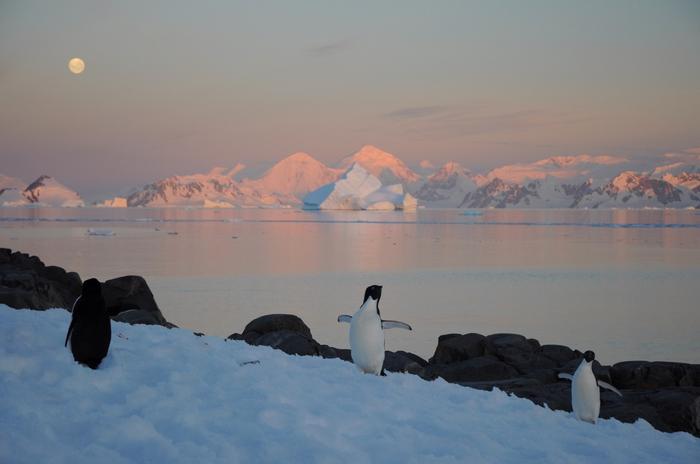Extreme events in Antarctica such as ocean heatwaves and ice loss will almost certainly become more common and more severe, researchers say.

Credit: Prof Anna E. Hogg, University of Leeds
Extreme events in Antarctica such as ocean heatwaves and ice loss will almost certainly become more common and more severe, researchers say.
With drastic action now needed to limit global warming to the Paris Agreement target of 1.5°C, the scientists warn that recent extremes in Antarctica may be the tip of the iceberg.
The study reviews evidence of extreme events in Antarctica and the Southern Ocean, including weather, sea ice, ocean temperatures, glacier and ice shelf systems, and biodiversity on land and sea.
It concludes that Antarctica’s fragile environments “may well be subject to considerable stress and damage in future years and decades” – and calls for urgent policy action to protect it.
“Antarctic change has global implications,” said lead author Professor Martin Siegert, from the University of Exeter.
“Reducing greenhouse gas emissions to net zero is our best hope of preserving Antarctica, and this must matter to every country – and individual – on the planet.”
Professor Siegert said the rapid changes now happening in Antarctica could place many countries in breach of an international treaty.
“Signatories to the Antarctic Treaty (including the UK, USA, India and China) pledge to preserve the environment of this remote and fragile place,” he said.
“Nations must understand that by continuing to explore, extract and burn fossil fuels anywhere in the world, the environment of Antarctica will become ever more affected in ways inconsistent with their pledge.”
The researchers considered the vulnerability of Antarctica to a range of extreme events, to understand the causes and likely future changes – following a series of recent extremes.
For example, the world’s largest recorded heatwave (38.5°C above the mean) occurred in East Antarctica in 2022 and, at present, winter sea ice formation is the lowest on record.
Extreme events can also affect biodiversity. For example, high temperatures have been linked to years with lower krill numbers, leading to breeding failures of krill-reliant predators – evidenced by many dead fur seal pups on beaches.
Co-author Professor Anna Hogg, from the University of Leeds, said: “Our results show that while extreme events are known to impact the globe through heavy rainfall and flooding, heatwaves and wildfires, such as those seen in Europe this summer, they also impact the remote polar regions.
“Antarctic glaciers, sea ice and natural ecosystems are all impacted by extreme events. Therefore, it is essential that international treaties and policy are implemented in order to protect these beautiful but delicate regions.”
Dr Caroline Holmes, a sea ice expert at British Antarctic Survey, said: “Antarctic sea ice has been grabbing headlines in recent weeks, and this paper shows how sea ice records – first record highs but, since 2017, record lows – have been tumbling in Antarctica for several years.
“On top of that, there are deep interconnections between extreme events in different aspects of the Antarctic physical and biological system, almost all of them vulnerable to human influence in some way.”
The retreat of Antarctic sea ice will make new areas accessible by ships, and the researchers say careful management will be required to protect vulnerable sites.
The European Space Agency and European Commission Copernicus Sentinel satellites are an essential tool for regular monitoring of the whole Antarctic region and Southern Ocean.
This data can be used to measure ice speed, sea ice thickness and ice loss at exceptionally fine resolution.
The paper, published in the journal Frontiers in Environmental Science, is entitled, Antarctic Extreme Events.
Journal
Frontiers in Environmental Science
DOI
10.3389/fenvs.2023.1229283
Article Title
Antarctic Extreme Events
Article Publication Date
8-Aug-2023




